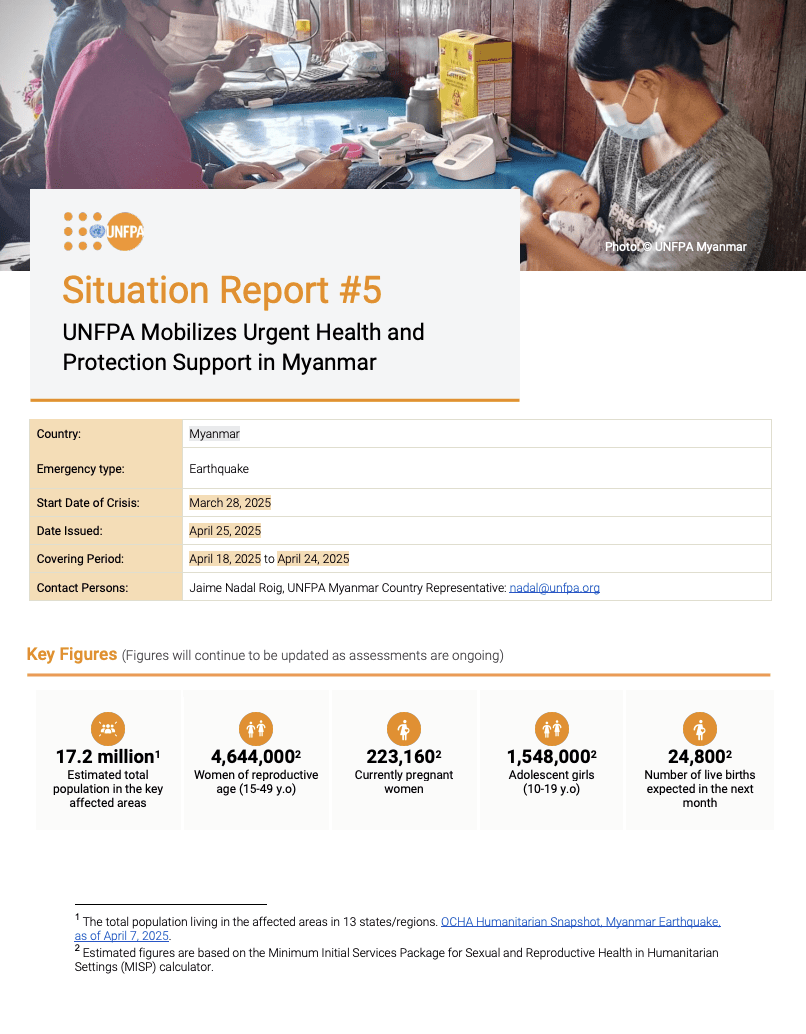
Resources
UNFPA Myanmar Situation Report #5 - April 2025
Resource date: Apr 2025
Author: UNFPA Myanmar

Resources
Resource date: Apr 2025
Author: UNFPA Myanmar
Three weeks after the earthquakes of 28 March 2025, frequent, strong aftershocks continue to shake central Myanmar, causing psychological distress, disrupting response operations, and increasing risks in already precarious living environments. 6.3 million people are in urgent need of assistance and protection, of which an estimated 4.6 million are women of reproductive age. Many were already facing pre-existing vulnerabilities related to conflict, displacement, and poverty.
Women and girls in affected areas face serious barriers to accessing essential sexual and reproductive health (SRH) services due to damaged infrastructure, fear of aftershocks, security-related curfews, high transportation costs, and shortages of essential commodities such as family planning supplies. Initial assessments indicate that over 640 health facilities have been damaged, particularly in Sagaing, significantly reducing access to life-saving reproductive, maternal, newborn, and emergency care.
Overcrowding, lack of privacy, and poor sanitation conditions in displacement shelters have heightened protection risks, particularly for women, girls, older persons, and persons with disabilities. Reports indicate an increase in incidents of gender-based violence (GBV), including sexual exploitation and abuse, particularly in displacement sites and during aid distribution. There are also concerns over the re-emergence of negative coping mechanisms such as early marriage and human trafficking.
UNFPA continues to prioritize SRH and GBV in the hardest-hit areas, through the establishment of women and girls safe spaces, mobile clinics, and psychosocial support, working closely with local partners and communities. Since the start of the earthquake response, UNFPA has reached 18,367 people with essential SRH services, and 18,259 people with integrated GBV and mental health and psychosocial support.
UNFPA is urgently appealing for US$12 million to support life-saving services for 680,000 women and girls in the most severely affected regions from April to September 2025. To date, only US$2.9 million has been received, leaving a funding gap of US$ 9.1 million.